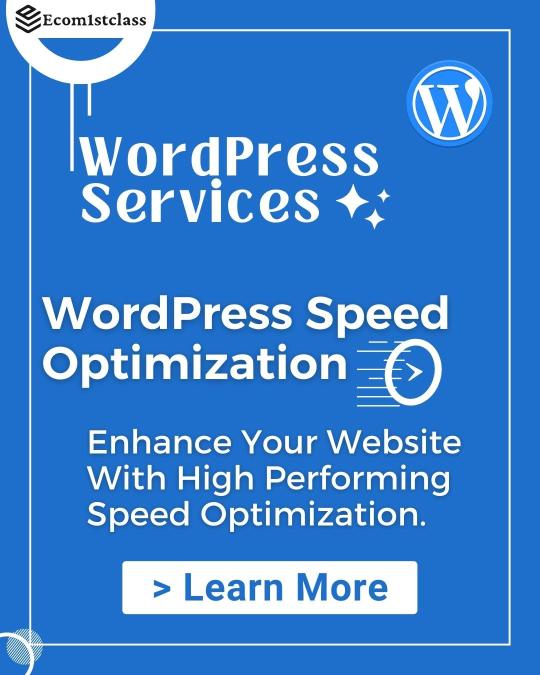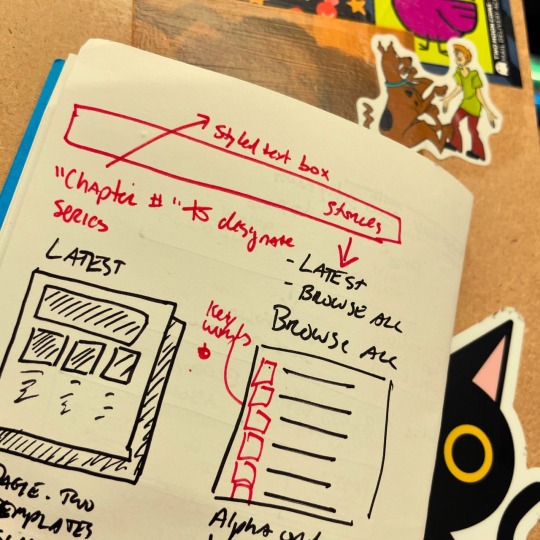#learning wordpress themes
Text
7+ Best Art Portfolio Website WordPress Premium Theme

Art Portfolio Website WordPress Premium Theme
Creating an art portfolio website is essential for artists, designers, and creatives to showcase their work and attract potential clients. Let’s explore some of the best WordPress premium themes specifically designed for art portfolio websites:
1. Dabble – Creative Agency & Portfolio WordPress Theme:

A sophisticated and stylish theme with multiple menu layouts, sliders, and preset blog post styles.
Features a portfolio system using a custom post type, allowing you to display your projects effectively.
Available in both free and premium versions, with advanced controls in the premium version.
2. Rubrash – Personal Portfolio WordPress Theme:

Known for its rock-solid coding and fantastic support.
Offers full-width portfolio layouts, including checkerboard style and carousel options.
Utilize the drag-and-drop Elementor Builder to create stunning pages for each portfolio entry.
3. Swipy – Creative Agency WordPress Theme:

A flexible and feature-rich theme powered by the Elementor page builder plugin.
Suitable for various types of websites, including art portfolio website.
Explore its extensive library of over 300 templates for startups, freelancers, and personal sites.
4. Kulluu – Creative Agency WordPress Theme:

A minimalist freelancer and agency portfolio theme.
Ideal for showcasing your work with a clean and modern design.
5. Bionic- Personal Portfolio WordPress Theme:

Another portfolio WordPress theme that emphasizes simplicity.
Perfect for artists, photographers, and creative professionals.
6. Cretic – Creative Agency WordPress Theme:

A multi-concept artist and creative agency theme.
Offers versatility and a variety of options for different types of art portfolio website.
7. Mifo – Creative Minimal Portfolio WordPress Theme:

A clean and minimal multipurpose theme suitable for art portfolio website.
Focuses on elegant design and typography.
Remember to choose a theme that aligns with your artistic style, provides an excellent user experience, and effectively showcases your work. Happy creating! 🎨🖌️
For more options, you can explore other themes from ThemeForest. Each of these themes has unique features and customization options to suit your specific needs.
#premium wordpress themes#premium wordpress theme#app landing wordpress theme#wordpress premium themes#education wordpress theme#education & online course wordpress theme#paid wordpress themes#consulting business wordpress theme#online learning wordpress theme#wordpress plugins#art portfolio website#Art Portfolio Website WordPress Premium Theme#Creating an art portfolio website is essential for artists#designers#1. Dabble – Creative Agency & Portfolio WordPress Theme:#A sophisticated and stylish theme with multiple menu layouts#sliders#and preset blog post styles.#Features a portfolio system using a custom post type#allowing you to display your projects effectively.#Available in both free and premium versions#with advanced controls in the premium version.#2. Rubrash – Personal Portfolio WordPress Theme:#rubash#Known for its rock-solid coding and fantastic support.#Offers full-width portfolio layouts#including checkerboard style and carousel options.#Utilize the drag-and-drop Elementor Builder to create stunning pages for each portfolio entry.#3. Swipy – Creative Agency WordPress Theme:#swipy
4 notes
·
View notes
Text

#Our WordPress Services: Uptime#Auditing#and Monitoring#Robust uptime#auditing#and monitoring services keep your website running with little to no downtime#WordPress SEO; Website Design; Landing Page; WORDPRESS Problem; Fix WordPress Issues; Fix WordPress Bug; Fix WordPress Error; WordPress Wor#ecom1stclass#WORDPRESS#Wordpressblog#Wordpressdesign#Theme#Learn More at: https://ecom1stclass.com/wordpress-services/
2 notes
·
View notes
Text
WordPress Web Development: Your Ultimate Course Guide
WordPress is the world's most popular content management system (CMS), powering over 40% of all websites. Its flexibility, ease of use, and powerful features make it the go-to platform for web developers and businesses alike. If you want to excel in web development, mastering WordPress is a crucial step. Enrolling in a WordPress web development course can provide you with the skills and knowledge needed to create professional, dynamic websites. This article will delve into the benefits of taking a WordPress web development course, highlight some top course options, and offer tips to get the most out of your learning experience.
Why Enroll in a WordPress Web Development Course?
Comprehensive Learning Experience
A well-structured WordPress web development course offers a complete learning experience, covering everything from the basics of setting up a website to advanced development techniques. This ensures you gain a thorough understanding of WordPress and its capabilities.
Practical Skills
Hands-on projects and practical exercises are a staple of most WordPress courses. These activities help you apply theoretical knowledge to real-world scenarios, enhancing your understanding and building your confidence.
Expert Guidance
Courses are often taught by experienced professionals who provide valuable insights, practical tips, and personalized feedback. Learning from industry experts can significantly accelerate your learning curve.
Up-to-Date Knowledge
WordPress is constantly evolving with new features and updates. A good course ensures you stay current with the latest developments and best practices in WordPress web development.
Career Advancement
Completing a reputable WordPress web development course can enhance your resume and career prospects. It demonstrates your commitment to learning and mastering web development, making you more attractive to potential employers or clients.
Top WordPress Web Development Courses
1. The Complete WordPress Development Course by Udemy
This comprehensive course by Udemy is perfect for those looking to master WordPress development. It covers everything from basic setup to advanced theme and plugin development. Instructor Juan Pablo De la Torre Valdez provides over 20 hours of video content and numerous practical projects.
Key Features:
Comprehensive curriculum
Extensive video content
Practical projects
Certificate of completion
2. WordPress for Beginners – Master WordPress Quickly by Udemy
Ideal for beginners, this course by Andrew Williams covers the essentials of setting up and managing a WordPress site. The course includes over 10 hours of video content, practical exercises, and lifetime access to materials.
Key Features:
Beginner-friendly
Comprehensive coverage
Practical exercises
Lifetime access
Certificate of completion
3. WordPress Development – Themes, Plugins & Gutenberg by LinkedIn Learning
LinkedIn Learning’s course, taught by Morten Rand-Hendriksen, focuses on essential web development skills using WordPress. The course covers theme customization, plugin integration, and working with the Gutenberg editor. Practical projects and a certificate of completion are included.
Key Features:
Essential web development skills
Practical projects
Certificate of completion
Access to LinkedIn Learning platform
4. Build a Professional Website with WordPress by Coursera
Offered by the University of London, this Coursera course is ideal for those who want to create professional websites using WordPress. The curriculum covers basic setup, theme customization, plugin integration, e-commerce functionality, and website security. A certificate from the University of London is awarded upon completion.
Key Features:
Professional-level training
E-commerce and security topics
Certificate from the University of London
Comprehensive curriculum
5. The Complete WordPress Website Business Course by Udemy
This course is designed for those who want to build a business using WordPress. It covers everything from website creation and customization to SEO optimization and e-commerce integration. The course includes over 20 hours of video content and practical projects.
Key Features:
Business-focused curriculum
Real-world experience
Practical projects
Certificate of completion
Tips for Success in a WordPress Web Development Course
Set Clear Goals
Before starting your course, define your objectives. Whether you want to build your own blog, develop custom themes, or start a web development business, having clear goals will keep you motivated and focused.
Create a Study Schedule
Consistency is crucial when learning a new skill. Set aside dedicated time each week to work on your course. A study schedule helps you stay on track and ensures steady progress.
Practice Regularly
WordPress and web development are skills that require hands-on practice. Make it a habit to practice regularly, even outside of your course assignments. Experiment with different themes, plugins, and customization options to gain confidence.
Engage with the Community
Participate in course forums, join study groups, and share your work for feedback. Engaging with other learners provides new perspectives, inspiration, and support when you encounter challenges.
Utilize Additional Resources
While your course will provide a wealth of information, don't hesitate to seek out additional resources. There are countless tutorials, blogs, and forums dedicated to WordPress and web development that can supplement your learning. Websites like WordPress.org, YouTube channels, and web development blogs are excellent places to find tips and inspiration.
Conclusion
Investing in a WordPress web development course is a fantastic way to enhance your web development skills and boost your career prospects. With the flexibility, expert instruction, and comprehensive learning materials that online courses offer, you can learn WordPress effectively and efficiently. Whether you're a beginner looking to get started or an experienced user aiming to refine your skills, there's a WordPress course out there that suits your needs. Start your learning journey today and unlock the full potential of WordPress!
#worpress course#wordpress developer course#wordpress courses online#wordpress course online#wordpress full course#wordpress learning course#wordpress course theme#wordpress classes near me#wordpress web design course#wordpress web development course#best wordpress course#wordpress classic theme#wordpress advanced course#wordpress complete course#wordpress developer course free#wordpress course online free#wordpress online course with certificate#wordpress blogging course#wordpress online course plugin#wordpress online course free with certificate
0 notes
Text
Best LMS WordPress Theme
EduQuest – It is a modern and professional Education LMS WordPress Theme. The EduQuest WordPress theme is ideal for websites that provide online education. This Learning Management System (LMS) WordPress theme for online courses and learning management systems is very easy to use and provides a wealth of industry-specific features for a seamless site construction process.
The Tutor LMS plugin, which has amazing capability, is installed on it. Elementor and Live Customizer are available for customization.
View This WordPress Theme: ⬇️⬇️
#WordPress#themes#WpThemes#LMS#Learning Management System#Website Maker#wordpressdesigner#wordpressdevelopment
0 notes
Text
Your Ultimate WordPress Guide for Beginners: Step-by-Step
This is Your Ultimate WordPress Guide for Beginners! Are you ready to embark on a journey into the exciting world of website creation? Look no further than WordPress! This user-friendly platform has been the go-to choice for beginners and pros alike. In this comprehensive guide, we’ll take you through the entire process of getting started with WordPress. Don’t worry if you’re new to all this –…

View On WordPress
0 notes
Text
WordPress Themes
If you havent checked out the MonsterInsights blog its worth adding to your favorites bar. There are lots of great articles to get you started with everything web design related.
Following up from my previous post on WordPress.org I did a little research on some of the best themes and custimisation options for your WordPress site.
Have a read for yourself and let me know what you think?
#webdevelopment#WordPress#wordpress community#wordpress plugins#wordpress websites#blogger#online learning#MonsterInsights#wordpress themes
0 notes
Text
How did you find tumblr?
I really enjoy talking with tumblr users so I thought I'd try posting more prompts to get some conversations started.
I was in a nostalgic mood this week and was trying to remember how I first came to tumblr. It got me thinking that it would be cool to learn other's origin stories. I'll go first.
Even though I'm a big nerd who loves Star Trek (DS9 4 life) and Anime (Fairy Tail forever) it was WordPress that brought me to tumblr. Back in 2010 while in college I worked part time for a WordPress theme shop called Obox Themes.
They were looking for new markets and decided that tumblr themes would be a good area to get into. I fell in love with how easy it was to modify my digital home and how there was a whole community of people hacking and releasing themes. Creating a WordPress theme from scratch would have been impossible with my skillset then but with tumblr I could do anything with my handy CSS guide and a few energy drinks.
Over the years what kept bringing me back was the themes. They were funky, weird and sometimes a little broken but who cares. It seemed like the entire web was trying to be grown up but tumblr was Toys R Us, they said it’s ok to be a kid. I loved that. Whenever I felt like I didn’t belong anywhere else I’d come back to tumblr and make a new theme (https://www.tumblr.com/themes/by/nick). I use to love clicking on the installs and seeing what kind of fun folks were using my stuff. What kind of people liked the weird stuff I did.
It's your turn. What brought you to tumblr?
4K notes
·
View notes
Photo

WP Astra
The Most Popular Theme of All TimeFastest, Lightweight, and Highly Customizable WordPress Theme!
2,369,964+ Websites Trust Astra!
Pre-Built Websites
Customize Without Code
Made for Page Builders
Super Fast Performance
Customize Everything Easily
Not only will your website be fast, but you will be able to make it look exactly how you want with our visual theme customizer, fast & easy!
Layout Settings
Header Options
Colors & Typography
Blog & Archives
Full & Seamless Integration With Your Favorite Tools
Elementor
Beaver builder
Woo Commerce
Learn Dash
Spectra
Yoast
Unparalleled Performance
Every single line of code in Astra is profiled for fast performing websites. We have numbers to prove that.
No jQuery
Less than 50 KB
Just 0.5 seconds!
Largest Library of Pre-Built Websites
Take a look at these gorgeous websites made with Astra and various Page Builders. These are available for import with Astra Sites plugin.
The Header Footer Builder
Drag and Drop Builder
Live Editing
Advanced Styling Options
Seamless WooCommerce Integration
Astra is Free. Now & Forever.
Download Now!
#astra#wordpress#wp#wordpress plugins#drag & drop builder#elementor#beaver#woo commerce#learn dash#spectra#yoast#themes#template#website templates#website builder#live editing#pre-built website#blog#blogging#tools#best tools#marketing tools#Digital Tools#free websites
1 note
·
View note
Text

Advice; Where to Make Rules and About Pages
If you've read my advice post about the difference between about and rules pages and why they're both important, you may not be wondering the best way to make them. The good news is, there are plenty of options!
Tumblr
The simplest choice. In the past, people would make custom pages on their theme. However, since dash view has become popular (and you can't view custom pages via it, nor can you view them on mobile), most people simply post their about/rules page as a normal text post, and link to it in their pinned post. If you have a custom theme, make sure to link the pages in the navigation bar too!
Using a plain Tumblr post increases your page's readability, but reduces the amount of formatting you can do. If you make your pages elsewhere, you will be able to customise them a lot more.
Carrd
A free website maker. You can make a small site with a free account, and the prices are pretty reasonable if you need to make a bigger site. Carrd has a minimalist aesthetic, and it will also adjust what you make to fit a mobile browser (though this may break your formatting if you have designed something complicated).
Carrd is easy to use, but it is best used for simple designs. If you want to do something more complicated than a basic Carrd layout, you're going to spend a lot of time trying to make the formatting work. If you want multiple pages for your site, you're also going to spend a lot of time formatting as you can't clone pages, therefore have to recreate each one every time instead.
It uses markdown for formatting text. If you're familiar with it, this can speed up writing, but it may slow you down if you've never used it before.
One of the benefits of Carrd is that there are lots of free templates available within the rpc! Here are resources I found with a quick Google search, but there are plenty more out there if you look for them: [x] [x] [x]
Weebly
Another free website maker. You can make more for free here than you can on Carrd. Weebly sites should adapt to work on a mobile browser.
I've never seen anybody use Weebly for about/rules pages, but I do recommend it! It's very easy to use, and, unlike Carrd, you can copy and paste entire pages. This makes it ideal if you have lots of muses that you want to make individual about pages for.
It uses a more typical text editor than Carrd. Instead of markdown, it's more like Microsoft Word - where you highlight text and click buttons to add formatting. You also have HTML/CSS options.
Weebly does offer some free templates, but you're likely to want to edit them to suit your needs more. This is okay! It isn't difficult to do!
Google Docs
A popular, completely free option. As with Carrd, there are plenty of templates and resources within the rpc (here are three examples: [x] [x] [x]). These pages will be viewable on a mobile browser, but the theme may not translate well. Keep readability in mind if you use this option.
If you use this option, also make sure the link you share is viewer only and doesn't have editor permissions!
Other Options (WordPress, Self-Hosting, etc)
Don't feel you have to follow the crowd. If you like to use WordPress, use WordPress. You could also use Neocities, or any other website builder!
Personally, I already own a web domain because I have websites for other online activities, so I use about pages that I've coded from scratch and host them myself. For my rules page, I just use a Tumblr text post that's linked in my pinned post. In the past, I've used Carrd and Tumblr pages for about pages.
If you want to write your site using HTML, some free website hosters will allow you to do this (Neocities, for example). If you're interested in coding, I do recommend this! It allows you to have full customisability, and coding can be a really useful skill. However, one downside of this is it can make your pages hard to read on a mobile browser. It's up to you to decide how important this is.
If you're interested in learning HTML (as well as CSS, JavaScript, and other coding languages), this site is a great resource!
28 notes
·
View notes
Note
Hey Krad, do you have any advice for starting a website like yours? I love the idea of starting a website to host my fandom and personal portfolio, and maybe get back a piece of the old internet. How did you put yours together?
hey there! great question, and the good news is there's a lot of ways to go about it.
the bad news is, there's a lot of ways to go about it.
to simplify things, there's kind of ... three "tiers" to the back-end of how to create a website. let's break it down below.
high ease, low customization. (wix, weebly, squarespace, etc. you pay a company + they give you a bunch of themes and pre-made pages for you to drop images in.) can have one of these online in 2-3 hours, but it often "feels" templated and sterile.
medium ease, medium customization. (making a theme from scrach with tumblr's custom code editor, hybrid sites with some pages in pure code, some with wordpress grafted onto some subdomains). this is what i'd classify my site as, as I use wordpress for my logs for brainless updating. while i'm confident coding single/static pages, i just don't have the time or brainwidth right now to make a complex archiving system.
low ease, high customization. (neocities, pure html/css/coding). the downsides to this is oftentimes these sites are not phone-friendly, and there's a steep learning curve. but for the quintessential "old internet" experience, by far the best route to take. there's also something really empowering about learning why things work the way they do.)
some of this can be super intimidating if you're starting from 0 coding knowledge; there's no shame in switching to a templating software. hell i started with weebly and dicking around in tumblr's custom code template for a solid 5 years before making my current site, and that was with a previous 5 years of sketchy html experience) you're not gonna learn everything overnight.
but! as long as you keep a curious and inquisitive mind, you can't go wrong.
one last encouragement: there's kind of a mini renaissance with custom sites right now, especially in neocities circles, so you're kinda in luck in that there's more resources than ever. i love scumsuck's guides, and fancoders (the community) is also all over this too.
good luck!
59 notes
·
View notes
Note
do you know any good places to put webcomics? is it best to just make your own website for them? I'm not really into sites like webtoon or whatever...
If you don't want much setup, you can make a Tumblr and use the Simple Webcomic Theme (or any other theme, as long as you set it so the blog shows 1 post per page for long form serialised work, or in a full-size grid for funny comics).
There are still other alternative platforms like Comics Fury, Comics Gator and Drunk Duck, those have been around before Webtoons.
If you are comfortable with HTML, CSS or generally learning/playing around with independent website setup, then you can go to Neocities or Wordpress.
I use Wordpress (the dot org) for my personal website, The World in Deeper Inspection webcomic and the Comics Devices library, but that's a system that's worked with me and my brain for 11 years now.
Neocities allows you total freedom, but you really have to be comfortable with learning since this is old-school website building. There's a webcomic template though.
Squarespace or Wix is fine if you use their blog system.
I don't recommend Carrd for webcomics! I just don't think the infrastructure (one-page site) is flexible enough for yourself or your readership.
My general opinion is that I'll always recommend having your webcomic in a place that you can control, or at the least, easily export to another platform. I've been through so many eras of platforms rising and falling. And exporting all the posts/art you upload on that one dying platform only is an ordeal that you would want to avoid (ask me, who's working on manually transferring stuff from Twitter and Deviantart to my personal website OTL)
136 notes
·
View notes
Text
Which actions are necessary to make a website?
Creating a website involves several steps, and the process can vary based on your specific needs and technical expertise. Here's a general guide to help you get started:
Define Your Purpose and Goals: Clearly define the purpose of your website. Identify your target audience. Set specific goals for your website.
Choose a Domain Name: Pick a unique and memorable domain name that reflects your brand or content. Choose a domain extension (e.g., .com, .org, .net).
Select a Web Hosting Provider: Choose a reliable web hosting provider that suits your needs and budget. Consider factors like performance, support, and scalability.
Plan Your Website Structure: Create a sitemap outlining the structure of your website. Plan the main navigation and organization of content.
Select a Content Management System (CMS): Choose a CMS like WordPress to manage your website's content. WordPress is a popular choice for beginners due to its ease of use.
Design Your Website: Select a responsive and visually appealing website theme or template. Customize the design to match your brand using the CMS's customization options.
Create and Organize Content: Write and organize the content for your website. Ensure your content is engaging, informative, and optimized for search engines.
Integrate Essential Features: Add necessary features such as contact forms, social media integration, and analytics. Install any plugins or extensions required for additional functionality.
Optimize for SEO: Optimize your website for search engines by using relevant keywords and meta tags. Create a robots.txt file and sitemap.xml to help search engine crawlers navigate your site.
Test Your Website: Test your website's functionality across different browsers and devices. Ensure that all links work, forms are submitted correctly, and pages load quickly.
Launch Your Website: Register your domain and set up hosting. Point your domain to your hosting provider. Launch your website to make it accessible to the public.
Promote Your Website: Share your website on social media. Implement an online marketing strategy to drive traffic. Consider paid advertising if it aligns with your goals.
Monitor and Update: Regularly update your content to keep it fresh. Monitor website analytics to understand visitor behavior. Make updates and improvements based on user feedback and analytics.
Remember, this is a simplified overview, and the specific steps may vary depending on your technical expertise and the complexity of your website. If you're new to website creation, platforms like WordPress often provide user-friendly interfaces and extensive documentation to help you through the process. You can buy WordPress Premium Theme to easily design your website.
#premium wordpress themes#premium wordpress theme#wordpress premium themes#app landing wordpress theme#education wordpress theme#consulting business wordpress theme#paid wordpress themes#education & online course wordpress theme#wordpress plugins#online learning wordpress theme#best business theme wordpress#business#business growth#finance#management#entrepreneur#marketing#business consulting wordpress themes#lethal company#limbus company#seo company#digital marketing company#good smile company#services#apple#site#development#best wordpress theme for medical website#webdevelopment#website
4 notes
·
View notes
Text

#Our WordPress Services: WordPress Speed Optimization#Enhance Your Website With High Performing Speed Optimization#WordPress SEO; Website Design; Landing Page; WORDPRESS Problem; Fix WordPress Issues; Fix WordPress Bug; Fix WordPress Error; WordPress Wor#ecom1stclass#WORDPRESS#Wordpressblog#Wordpressdesign#Theme#Learn More at: https://ecom1stclass.com/wordpress-services/
2 notes
·
View notes
Text
Shopify has a blog problem, this creates a really simple and straightforward opportunity for freelance designers/programmers

Earlier this year I settled the editorial decisions I needed for a lot of blogging going forward, and recently I've experimented (repeatedly) with the idea of having a blog on a separate platform, or using Shopify's system.
Having two sites would allow me to blog on a WordPress site, but creates... two sites, therefore complicates everything more. More maintenance, design, etc. etc.
I am actively seeking to make my life easier so I am foregoing two sites and learning to live with the limitations.
A personal struggle to the surprise of no one.

You can use WordPress and thread Shopify through it via the "buy" button, which is a shortcut for small stores and/or larger stores where you are very comfortable in WordPress.
You cannot use Shopify and thread WordPress through it.
Which is a shame.
Because Shopify's native blog platform is fucking horrible.

An independent graphic designer who can program, or a programmer who can design, cannot solve Shopify's problems.
They are inherent to the system and likely built on legacy code Shopify doesn't want to update because it'll cost a fortune.
I'll just be mad about this until the market forces them to address this opportunity and they revamp their blogging platform. That's fine.
Or maybe decades will pass and they won't. That's... fine too. I guess.

I am rambling this out because if I were in the business of freelance graphic design and/or programming I would jump on this immediately. I used to be and always shared opportunities with friends and it was fun and I kinda miss that aspect of the life.
I'm not in that business, and I have in-house programming, please don't pitch me, but do consider pitching... pretty much everyone with a Shopify site and a blog as Phase 01 of your plan, and everyone who has a Shopify site and does not have a blog as Phase 02 of your plan.
Here is what I would tackle:
Shopify blogs have two structures: "blog" and "blog post".
A blog in Shopify is essentially a category in WordPress, with more limitations, such as, a blog post can only be in a single "blog". That sucks but it means your life as a designer/developer gets more interesting.
Most Shopify themes come out of the box with 1 "blog" and 1 "blog post" template. They are exceptionally simple, usually. I would build a few test templates and offer them to clients "these will be modified to fit your direct style."
For some reason -- I'm guessing focus -- most blogs in Shopify have the image on top. If you structure "image on the left, image on the right" as options you can offer clients, you've just tripled their layout capabilities.
For another reason, I don't know why, but almost all shopify blog post templates I've seen do not have sidebars. Which is insane?! You can control that from the fucking "blog post" template so it would be an easy win.
You could work around the "a post can only be in one blog on Shopify" issue by having a sidebar that pulls the latest 3 (or 5 or whatever) posts as links for other blogs on the site: TEST SITE has 3 blogs. When you're looking at a post on BLOG 01, in the sidebar, you see a link to the latest post on BLOG 02 and BLOG 03. Similarly, when you're looking at a post on BLOG 02, the sidebar has the latest post from BLOG 01 and BLOG 03 (and so on)
The template I use, off the shelf, uses the Shopify's user name and details for the author of the blog. Once a blog post is created, in Shopify, you cannot alter the author. This is dumb as fucking rock salt on slug popcorn. But, again, systematic, I'm pitching ideas on ways around it -- exclude this and just use a CUSTOM DATA field to allow the Shopify owner to pick the relevant author. This cuts down on the need for extra Shopify users, tremendously, and builds in the opportunity for WordPress-style author footers on blog posts.
Emulate the very common filtering on products -- dropdowns, sorting mechanisms -- with tags on a sidebar on BLOG templates. This will be tricky because you cannot hook into the Search & Discovery function, but it's absolutely no where near impossible. And would be amazingly useful.

Overall Shopify is a decent platform with significant advantages.
There blogger apps but holy shit that is so unnecessary. If they were a one-time-fee, it would be fine, but they aren't, they're generally $20+/month.
I'm not interested in paying for a service that ties me into another tech system that I am fucked if they go out of business, jack up their prices, introduce a feature I don't like, or remove a feature I do like.
For something like a blog system.
Which relies HEAVILY on very structured, single-built, near-infinitely-reused templates.

A low effort, high yield opportunity exists for independent designer/programmers to come up with a suite of designs and say "hey with some very simple modifications, we can take 1 of the following, apply it to your store, and dramatically increase your in-site blogging opportunities."
You start with a base "blog post" template and a base "blog" template and then every time someone hires you to add a feature to theirs, using Shopify's core tech -- you're just applying paint -- you now have a second set of templates.
Recycle forward.
One time fee per client -- likely low, but again effort is low since 90% of the code is re-used -- and each time you secure a client, you have opened a networking door.

Just make sure you include instructions and/or a premium service for when the customer upgrades their theme version -- "occasionally your theme author will upgrade, and this may get lost... so do the following to bring it back and/or we'll handle it for you for $X and Y-days notice."
Business opportunities are everywhere.
Good luck!
I repeat don't add me to your pitch list, I have a programmer in-house, but use this idea to make a business or extend yours!
This isn't financial advice, it is annoyed rambling!
#shopify#small ecommerce#small business#web design#ecommerce design#blogging#shopify blogging#graphic design#blog design
18 notes
·
View notes
Text

church notes from the adventists this week; very tired, not sleeping; yesterday made ube yogurt (had a big purple potato to use up) and a small carrot cake (using flax and protein powder mostly, had to use up carrots); cleaned a lot this week; almost done with hearts in atlantis audiobook, and my brilliant friend (physical); really like the illustrations i made for last orsday sabbaths programming; haven:t felt much motivation; reading blog (the untranslated, wordpress) on "graduate school" makes me want to learn languages to read more things -- language kind-of creepy: can:t remember if it were in programming or in DMs or some ask here but just-as music threads itself with control, control, control mechanism so-too does language and so-too does light and life; constant thrumming control, control, control and if you hear it, it sounds like little metal insects; in the inanimate driving forces of life (CONNECT!) are duller, but still there: light is like a fog heavy with bodies of fine insect only seeming invisible but surely there as any molecule or oxygen; may-be even you get used to it, so you cease to see it; shame i:m so senseless; really liking design of don zauker and UFO theme in pynchon--daitarn 3: invincible machine! mars and cold-pressed machine
25 notes
·
View notes
Text
John Green's Thoughts on Adulthood: A Post-Mortem Analysis
So I was thinking about the time years and years ago, back when writer John Green was more active on Tumblr. Someone asked if he would ever write a book about adults, and his perspective were that adults were boring.
There's mixed physical evidence online. I remember seeing it, the first line of the ask was captured on a Buzzfeed article from 2013. I couldn't find the actual ask, because from what I've heard at some point John Green was torn apart with such intensity that he is now just a collection of atoms. And I don't hate John Green. I liked his books when I was also young. I watched the VlogBrothers. If I met him in an author space I would thank him for introducing me to NaNoWriMo when I was in middle school.
And then I would ask if he was doing okay. Like - emotionally? Because the shit she said in that ask is some of the saddest I have ever heard in my life. I'm using this Wordpress post as a reference of the rest of what he said and I just want to go through why it's just such a fucked and dangerous thing to say as an author who advocates for young people.
Follow me!
“Would you ever write a YA novel where an adult plays a key role? I know you like to leave the focus around the teenagers and their “peer relationships… but I was just wondering if it had ever crossed your mind.”
That was the ask. Fairly reasonable! And John Green responded immediately with the following:
I mean, to be totally honest with you, I don’t really give a shit about adults.
This on its own is a massive self-report. Not to any sort of crime or character flaw. In my mind, it's part of the reason why I feel like a point where big enough online figures, writers included, either need a PR team or a LOT of therapy. But he continues.
Like, all of my friends are adults. My spouse is an adult. My parents and brother are adults. I know and like many adults. But I don’t want to write for them. Or God forbid about them.
They’re just so…boring. It’s like, “Oh I have a mortgage. I buy six pairs of identical khaki pants at a time. I take care of children and watch the television program CSI.”
I admire people who can make that crap into the stuff of interesting fiction, but…yeah. No.”
I am angry. I am very angry. If someone said this shit to me in person I would make a face. If we were sharing a space with anyone under the age of 21 I would immediately say "you need to shut the fuck up right now jesus christ".
The thought of a writer who really made his whole brand caring for youth telling them that their future is inevitably dull and unremarkable, especially when you deal with themes of suicide and mental illness, is actually one of the most artistically unethical things I can think of at the moment. I understand that John Green struggled with untreated OCD for very long time, so there's a chance this could actually just be him voicing an intrusive thought that honestly terrifies him.
But he's wrong. We know this, right? Including the adults on here who complain about the tedious aspects of adult life? We know that in a majority of cases it is generally better to be a legal adult than a minor? If you are someone who would go back to being in high school because you maybe had less responsibilities, are you really prepared to lose bodily/legal/societal autonomy?
Like I struggle in life. Sometimes I've struggled a lot. But at my worst, when I was unemployed and flat broke and I couldn't even sell my blood because I took Lithium, if someone told them they could magic me back to being 16 years old again I would scream in their face until they left.
Also, I have a mortgage. It's not boring. Mortgage and insurances are, in fact, pretty confusing and something you have to learn and research. The most boring part about my mortgage was the thirty minute meeting I spent signing paperwork, and once I did that I owned a house with my wife.
Young people who see this - there are going to be boring parts of your life. That's a thing that happens, and sometimes you'll actually be grateful for it. You aren't boring for being thrilled that there's a sale on khakis if you're buying them for a theatrical production, or donating them to a war relief effort, or you're using the fabric, or if it allows you to save money and time in a way that means you get to have a smoothie or something later.
I cannot speak for the experiences of people with higher support needs than I have. But I did talk about this to a friend with higher support needs, and they agreed that being an adult rules. There is a point in which you are no longer an extension of your family or upbringing and it is your life.
It's not always fun. It's scary and confusing and lonely. I had to learn a lot of what my parents never taught me. Adults are always learning things. But since I graduated high school, the only boring period of my life has been the times where I overworked myself into a breakdown and was forced to recover.
And, considering where John Green is now, that kind of explains his perspective a lot.
I hope he figures stuff out. There's no age limit to having to figure stuff out. We're all going to have to do it a lot in our lives.
9 notes
·
View notes